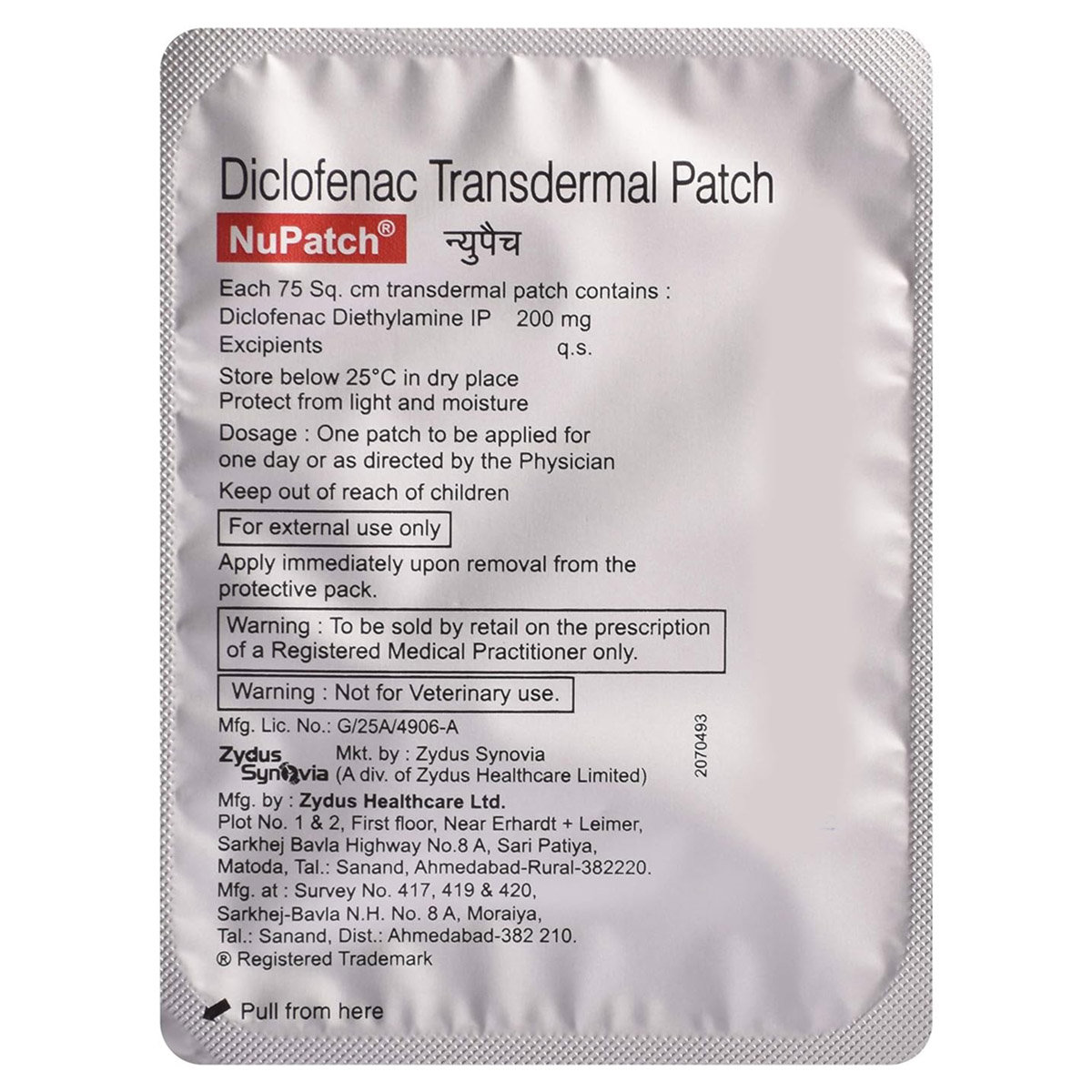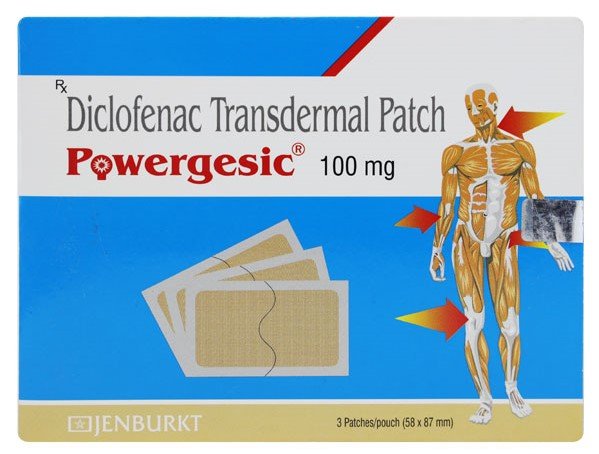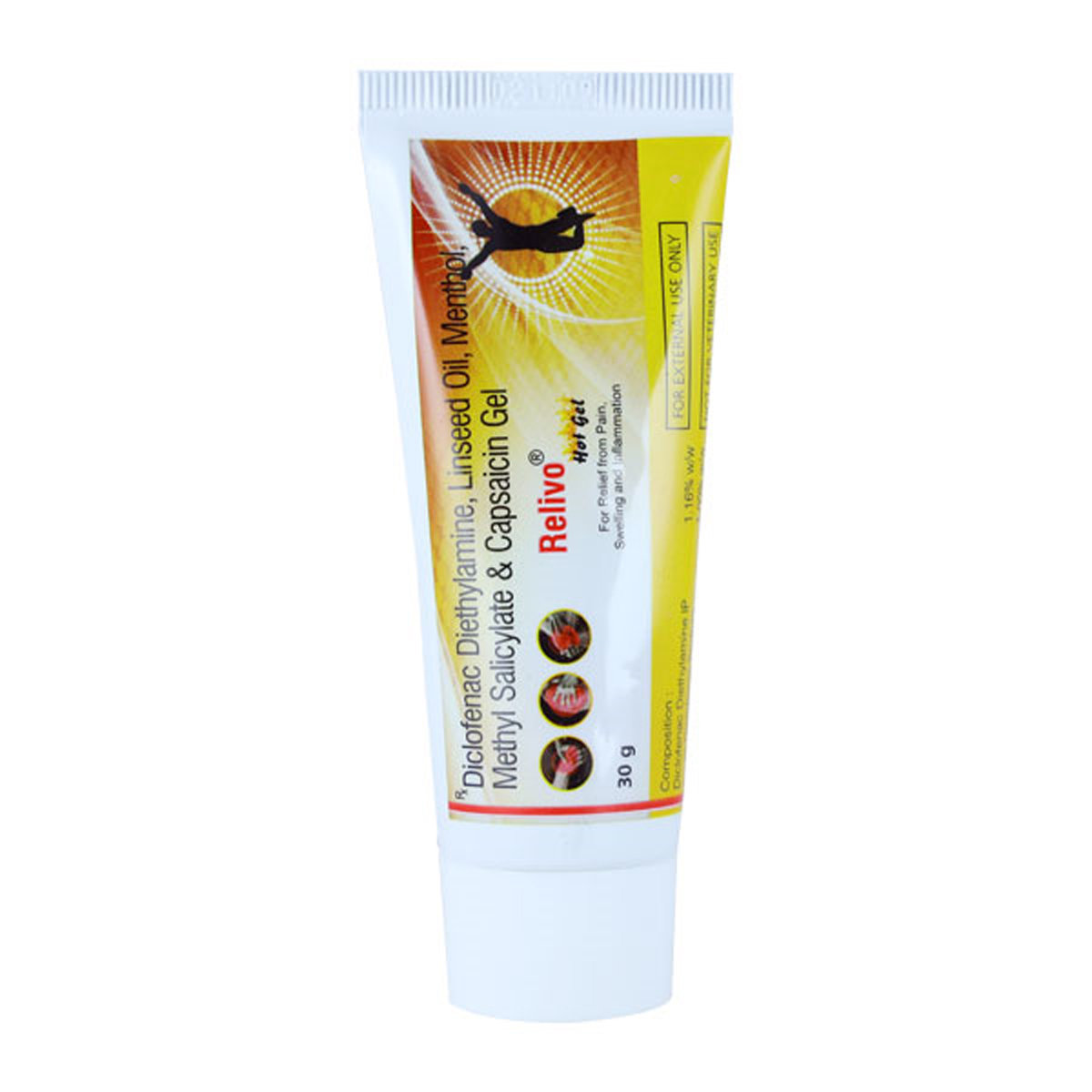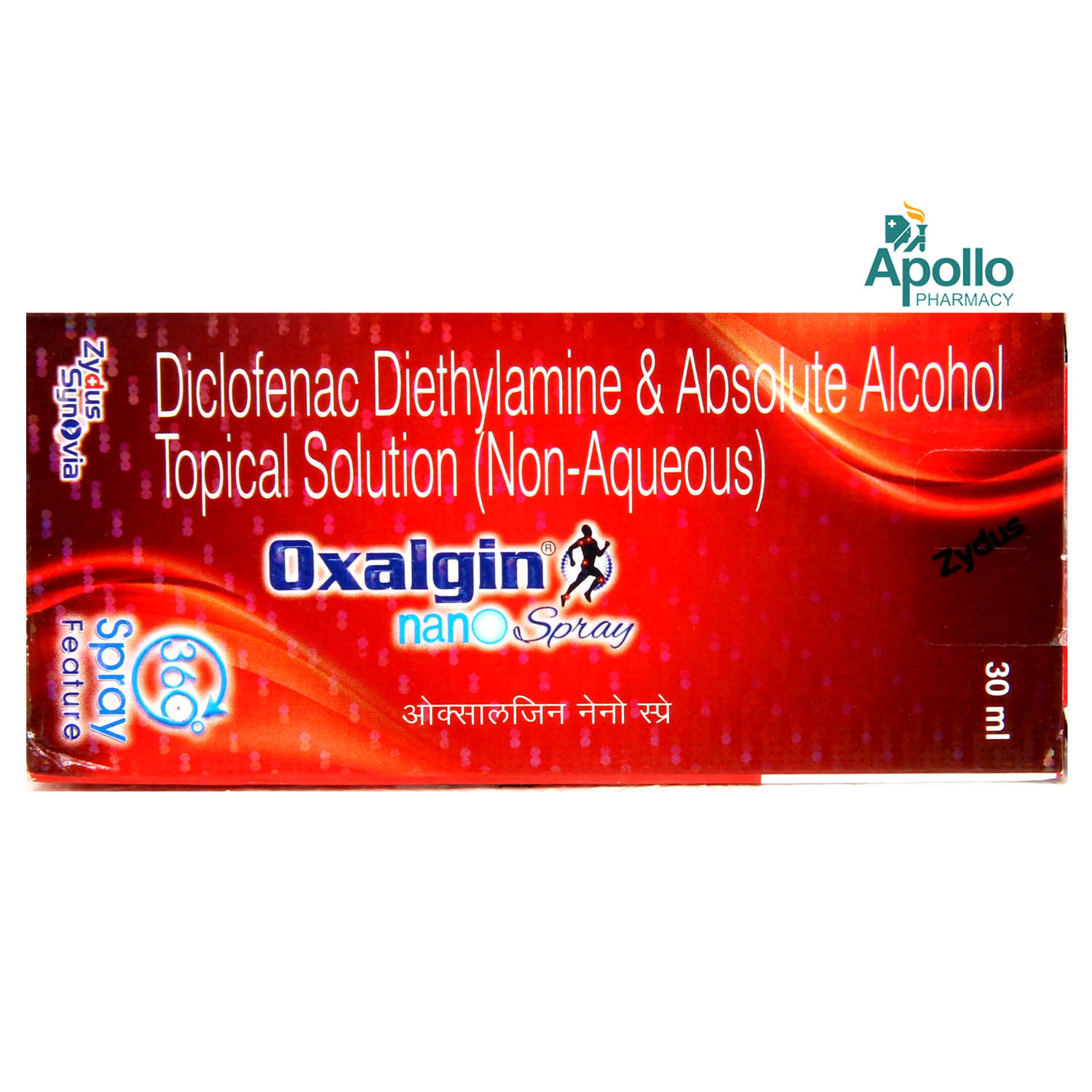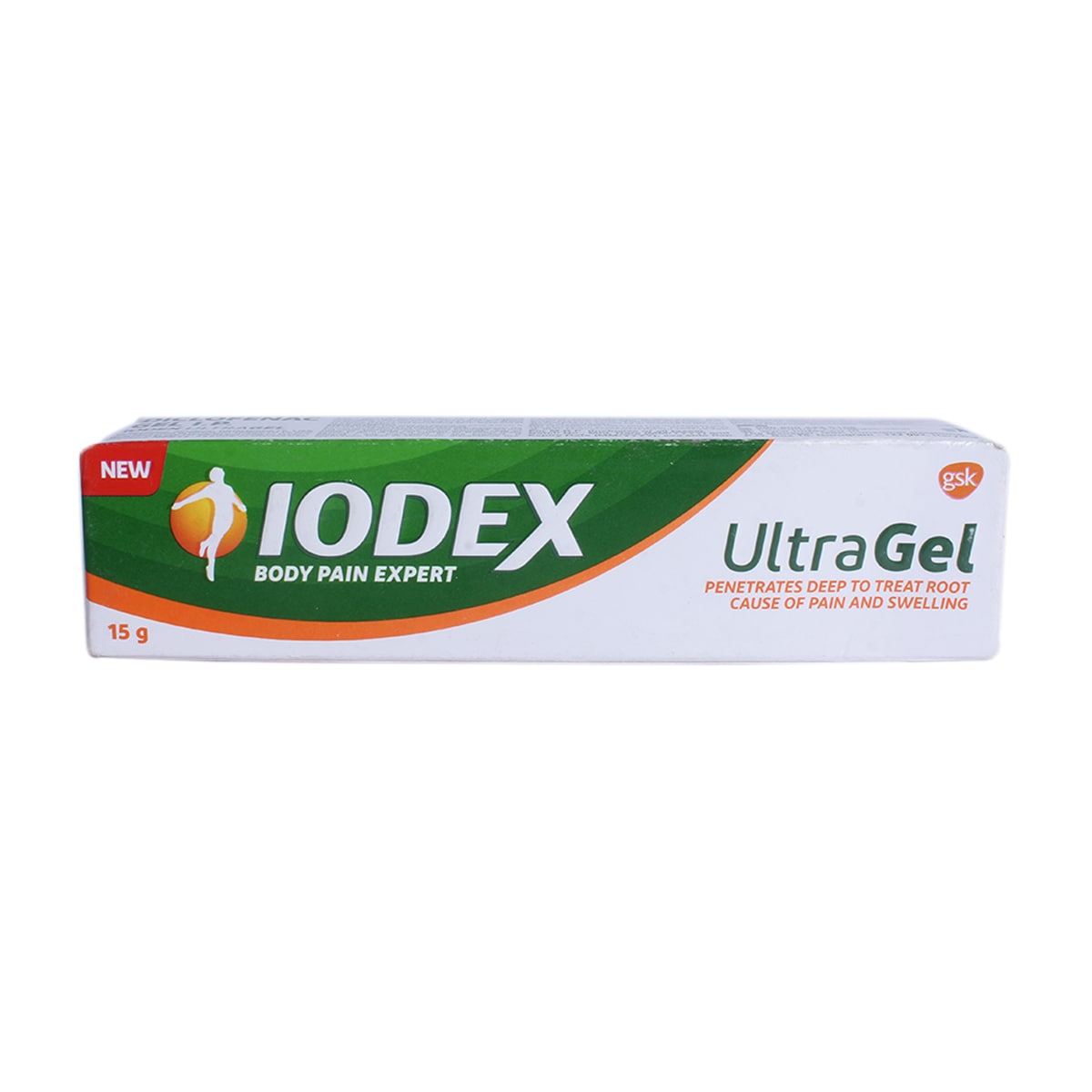Diclofenac Diethylamine
About Diclofenac Diethylamine
Diclofenac Diethylamine is used to relieve pain and inflammation associated with musculoskeletal disorders, strain, sprain, arthritis, contusions (bruises), post-traumatic pain, and low back pain. Musculoskeletal pain could occur due to arthritis, osteoporosis, fractures, or dislocations.
Diclofenac Diethylamine contains Diclofenac diethylamine, which works by blocking the effect of a chemical messenger known as cyclo-oxygenase (COX) enzymes that make another chemical, prostaglandin.
In some cases, you may experience common side effects such as application site reactions like itching, irritation, redness, and a burning sensation. Most of these side effects do not require medical attention. However, talk to your doctor if the side effects persist or worsen.
Diclofenac Diethylamine is for external use only. Notify your doctor if you have had any recent heart surgery. Consult a doctor before using Diclofenac Diethylamine if you are pregnant or breastfeeding. Do not apply Diclofenac Diethylamine to open wounds, cuts, scrapes, or damaged skin.
Uses of Diclofenac Diethylamine
• Relief of muscle pain: Diclofenac Diethylamine helps reduce pain caused by muscle strain, overuse, or mild injuries.
• Treatment of joint inflammation: It reduces swelling, stiffness, and discomfort in joints affected by osteoarthritis or other inflammatory conditions.
• Management of backache: Diclofenac Diethylamine provides localised relief from lower or upper back pain.
• Support in sprains and strains: Reduces pain and inflammation due to ligament or muscle injuries.
• Relief of sports injuries: Diclofenac Diethylamine is commonly used to treat minor injuries caused by physical exercise.
• Control of soft tissue inflammation: It reduces inflammation in tendons, ligaments, and soft tissues, including tendinitis and bursitis.
Medicinal Benefits
- Diclofenac Diethylamine is used to relieve pain and inflammation associated with musculoskeletal disorders, strain, sprain, arthritis, and low back pain.
- Diclofenac Diethylamine works by blocking the effect of a chemical messenger known as cyclo-oxygenase (COX) enzymes that make other chemical prostaglandins.
- By blocking the effect of COX enzymes, fewer prostaglandins are produced, which reduces mild to moderate pain and inflammation at the injured or damaged site.
Directions for Use
- Follow your doctor's instructions on the dosage and timing of this medication to ensure safe and effective use.
- Apply a thin layer of Diclofenac Diethylamine and gently massage it into the skin until absorbed.
- Diclofenac Diethylamine is only for external use. Avoid contact of the Diclofenac Diethylamine with the nose, mouth or eyes. In case of accidental contact with these areas, rinse with water thoroughly.
Storage
Side Effects of Diclofenac Diethylamine
- Itching
- Irritation
- Redness
- Burning sensation
Drug Warnings
- Do not use Diclofenac Diethylamine if you are allergic to any of its contents, if you are hypersensitive to NSAIDs, or if you have kidney failure.
- Avoid using Diclofenac Diethylamine if you are during the perioperative period in the setting of coronary artery bypass graft surgery.
- Diclofenac Diethylamine may increase the risk of a fatal heart attack or stroke. So, if you have had any recent heart surgery, do not use Diclofenac Diethylamine.
- Inform your doctor if you have peptic ulcers, heart surgery, high blood pressure, high cholesterol, diabetes, stomach ulcers, bleeding problems, asthma, fluid retention, inflammatory bowel disease, or kidney or liver problems.
- Consult a doctor if you are pregnant or breastfeeding.
Drug Interactions
Drug-Drug Interactions: No interactions found/established.
Drug-Food Interactions: No interactions found/established.
Drug-Disease Interactions: No interactions found/established.
Drug-Drug Interactions Checker List:
Safety Advice

Alcohol
unsafeAvoid alcohol consumption as it might increase the risk of stomach bleeding.

Pregnancy
consult your doctorPlease consult your doctor if you have any concerns regarding this; your doctor will prescribe only if the benefits outweigh the risks. Diclofenac Diethylamine should not be used during the last trimester of pregnancy.

Breast Feeding
consult your doctorConsult your doctor if you are breastfeeding; your doctor will decide whether Diclofenac Diethylamine can be used by breastfeeding mothers or not. If you are breastfeeding, avoid applying Diclofenac Diethylamine on your breast.

Driving
safe if prescribedDiclofenac Diethylamine is unlikely to affect your ability to drive.

Liver
consult your doctorPlease consult your doctor if you have a liver impairment or any concerns regarding this.

Kidney
consult your doctorPlease consult your doctor if you have kidney impairment or any concerns regarding this. Avoid using Diclofenac Diethylamine if you have kidney failure.

Children
consult your doctorIf you have any concerns regarding the use of Diclofenac Diethylamine for children, please consult a doctor.
Habit Forming
Diet & Lifestyle Advise
- Physical activity helps in strengthening muscles and relieves joint stiffness. Gentle activities like 20-30 minutes of walking or swimming would be helpful.
- Performing yoga may also help improve joint flexibility and pain management.
- Maintain a healthy weight by performing regular low-strain exercises and eating healthy food.
- Get adequate sleep, as resting the muscles can help in reducing inflammation and swelling.
- De-stress yourself by meditating, reading books, taking a warm bubble bath or listening to soothing music.
- Acupuncture, massage and physical therapy may also be helpful.
- Eat food rich in antioxidants such as berries, spinach, kidney beans, dark chocolate, etc.
- Foods containing flavonoids help in reducing inflammation. These include soy, berries, broccoli, grapes and green tea.
- Avoid smoking and alcohol consumption.
Special Advise
- Do not apply Diclofenac Diethylamine on cuts, wounds, broken skin, infections, or rashes.
- Wash your hands after use. However, do not wash your hands if you are using Diclofenac Diethylamine on your hands.
- If Diclofenac Diethylamine comes in contact with eyes, mouth or nose, wash with water immediately. Consult a doctor if irritation persists.
Patients Concern
Disease/Condition Glossary
Musculoskeletal pain: Musculoskeletal pain affects the bones, muscles, ligaments, tendons, and nerves. It can be acute or chronic and can be localised or widespread. The pain can be mild or severe enough to interfere with your daily routine. Musculoskeletal pain could occur due to arthritis, osteoporosis, fractures, dislocations, problems with the bone structure or injury to the bones, joints, tendons, muscles, and ligaments. Symptoms of musculoskeletal pain include stiffness, swelling, redness, weakness, muscle spasms or twitching, trouble moving the affected area, and soreness.
FAQs
Diclofenac Diethylamine is used to relieve pain and inflammation associated with musculoskeletal disorders, strain, sprain, arthritis, contusions (bruises), post-traumatic pain, and low back pain.
Diclofenac Diethylamine works by blocking the effect of chemical messengers that cause pain and inflammation at the injured or damaged site. Thereby, Diclofenac Diethylamine helps in providing relief from pain.
Diclofenac Diethylamine is used to reduce and relieve pain and inflammation associated with osteoarthritis. It is a joint disease in which the two ends of the joints come together due to the breakdown of a protective covering called cartilage.
Avoid concomitant use of Diclofenac Diethylamine with other topical products such as cosmetics, sunscreens, lotions, moisturisers, insect repellent creams, and other gels.
Do not apply external heat or cover the treated skin with dressings after applying Diclofenac Diethylamine. Covering the skin or applying heat might increase the amount of drugs absorbed into the skin, leading to unpleasant side effects.
Do not apply Diclofenac Diethylamine on wounds, skin injuries, irritated skin, skin abrasions, rashes, and infections. Apply Diclofenac Diethylamine on healthy skin only.
Avoid using Diclofenac Diethylamine for longer durations unless prescribed by the doctor. The duration depends on the response to the treatment. If your condition does not improve despite using Diclofenac Diethylamine for 7 days, consult a doctor.
Diclofenac Diethylamine is usually applied up to 4 times a day. However, the frequency of application may vary depending on the specific condition being treated. Always follow the recommended dosage instructions provided by your doctor or pharmacist and consult them if you have any concerns.
The side effects of Diclofenac Diethylamine are typically mild and limited to the application site. Common side effects include itching, redness, irritation, and burning sensation. Most of these side effects are temporary and resolve on their own over time. However, if any of these side effects persist or worsen, it's essential to consult your doctor for further guidance.
Diclofenac Diethylaminel is generally considered safe when used as directed by your doctor for short-term relief of pain and inflammation in conditions like muscle strains, sprains, and arthritis. However, it's essential to use it responsibly and avoid applying it to broken or irritated skin, near the eyes, or using it excessively.
Diclofenac Diethylamine is not suitable for everyone. You should avoid using it if you're allergic to its ingredients, NSAIDs, or have kidney failure. Additionally, it's not recommended after recent heart surgery or during the perioperative period of coronary artery bypass graft surgery. Individuals with heart conditions, asthma, ulcers, or liver and kidney issues should consult a doctor before use. Furthermore, pregnant or breastfeeding women and children under 14 years old should consult a doctor before using Diclofenac Diethylamine.
Diclofenac Diethylamine should be used with caution during pregnancy. It's essential to consult your doctor if you have any concerns. Your doctor will prescribe this medication only if the benefits outweigh the risks. Notably, it should not be used during the last trimester of pregnancy.
The duration of using Diclofenac Diethylamine varies depending on the condition being treated and individual factors. It's essential to follow your doctor's instructions and only use it for the recommended period. Typically, Diclofenac Diethylamine is used for short-term pain relief, and long-term use should be avoided unless your doctor advises.



